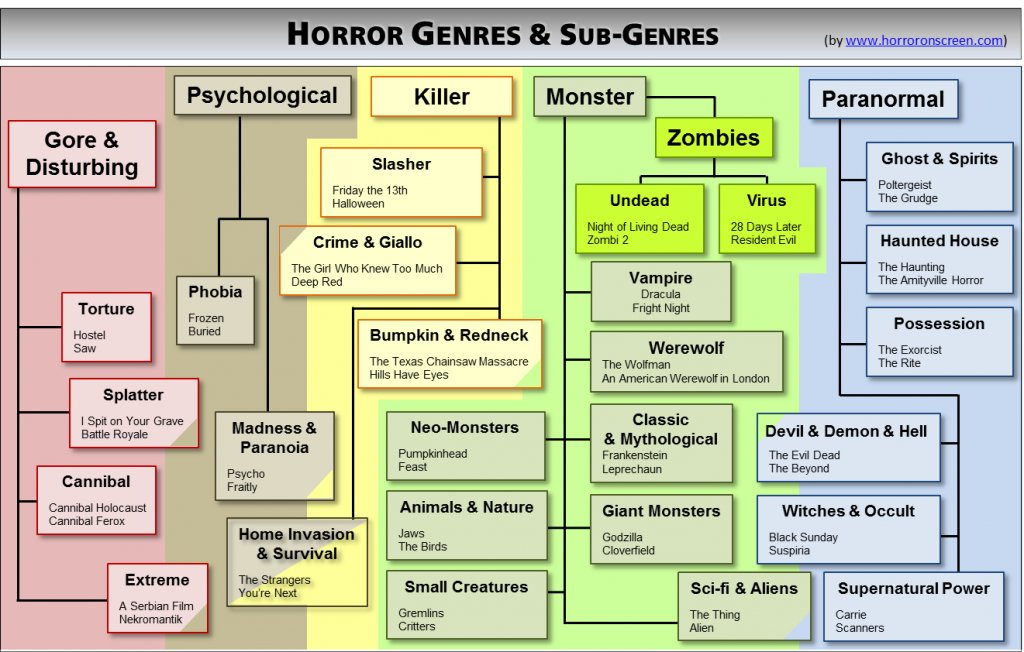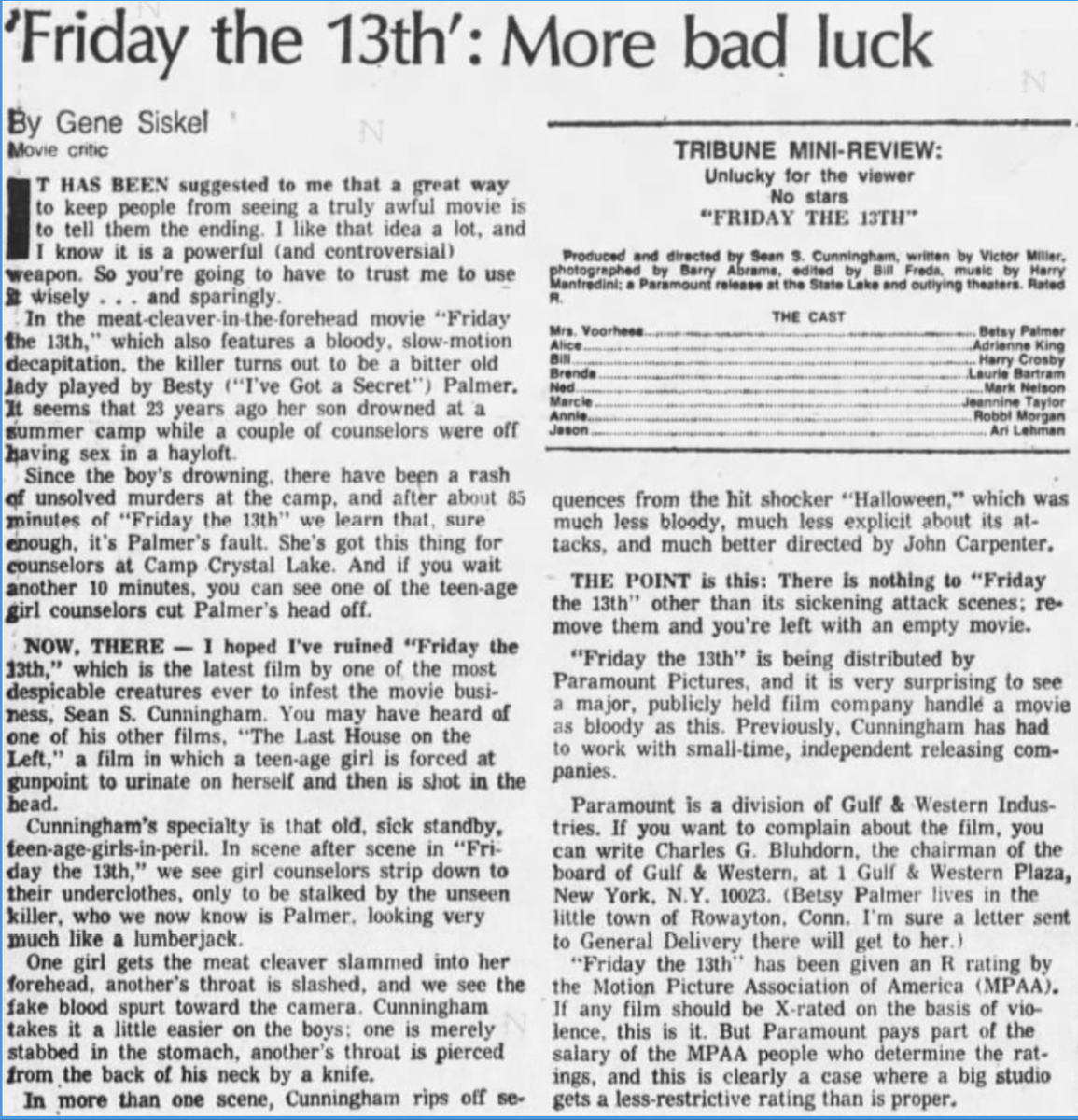How much do you know about the horror genre?
Here's a short thread of really fun infographics about horror movies, many of which I found on @DataIsBeautiful. We've got everything from demographics to jump scares to Bechdel Test scores.
A few of these may surprise you!
1/💀
Here's a short thread of really fun infographics about horror movies, many of which I found on @DataIsBeautiful. We've got everything from demographics to jump scares to Bechdel Test scores.
A few of these may surprise you!
1/💀

Let's start with popularity. The past 2 years have seen horror devour its largest share of the Box Office in history.
People flocked to horror during the pandemic. However, the popularity of horror (and thrillers!) has been on a steady upward trend for decades.
2/💀
People flocked to horror during the pandemic. However, the popularity of horror (and thrillers!) has been on a steady upward trend for decades.
2/💀

Horror is the genre most likely to turn a profit. A spooky story doesn't require a big budget to be a hit. @jason_blum built a genre empire on this.
The first @blumhouse film, Paranormal Activity, is the most profitable film ever. Shot for $15k, It grossed nearly $200M.
3/💀
The first @blumhouse film, Paranormal Activity, is the most profitable film ever. Shot for $15k, It grossed nearly $200M.
3/💀

Despite being the most profitable genre, horror doesn't spend much time in theaters. In fact, horror spends less time in theaters than *any* other genre.
R ratings limit the number of potential viewers in theaters, so horror relies on big opening weekends.
4/💀
R ratings limit the number of potential viewers in theaters, so horror relies on big opening weekends.
4/💀

Where is horror the most popular? Turns out that Mexico *really* loves the genre. South Korea, Russia, and the US/Canada are also big consumers. Censorship in China makes horror (especially supernatural) largely unavailable.
Low popularity in Japan surprised me!
5/💀
Low popularity in Japan surprised me!
5/💀

Horror audiences are younger and pretty diverse. Horror is really popular among racial and ethnic minorities in the US. In fact, the gap might be larger for horror than any other genre.
6/💀


6/💀



In the UK, horror has a larger share of viewers in lower social classes than any other genre.
I found this interesting since it contradicts a recent study suggesting that horror fans are more likely to have high levels of resources.
7/💀
I found this interesting since it contradicts a recent study suggesting that horror fans are more likely to have high levels of resources.
7/💀

Maybe the elites just don't like jump scares? The critics apparently don't. Horror movies with more jump scares tend to have lower @IMDb scores.
Still, there seem to be plenty of great horror movies with a lot of jump scares.
8/💀
Still, there seem to be plenty of great horror movies with a lot of jump scares.
8/💀

Speaking of jump scares, when are they most likely to happen? A lot of horror movies have a big jump scare near the end of the movie. Looks like the only time you're safe is in the last few minutes of the movie.
Would be cool to see this broken down by sub-genre.
9/💀
Would be cool to see this broken down by sub-genre.
9/💀

Last but not least, the Bechdel Test. Horror has a higher pass-rate for the Bechdel Test than any other genre.
This shouldn't come as a surprise since @jamieleecurtis, @LangenkampH, @1AshleyLaurence, and other Twitterless Final Girls are the at the core of the genre.
10/💀
This shouldn't come as a surprise since @jamieleecurtis, @LangenkampH, @1AshleyLaurence, and other Twitterless Final Girls are the at the core of the genre.
10/💀

Bonus Content: Some great horror Twitter follows:
@MathiasClasen
@RecFearLab
@CryptTV
@HorrorLex
@MHhorrordoc
@HorrorLex
@horrorhomeroom
@FacultyofHorror
@TheMutantFam
@RebekahMcKendry
@joshstolberg
@deadmeatjames
@FreddyInSpace
@BDisgusting
@DreadCentral
💀💀💀
@MathiasClasen
@RecFearLab
@CryptTV
@HorrorLex
@MHhorrordoc
@HorrorLex
@horrorhomeroom
@FacultyofHorror
@TheMutantFam
@RebekahMcKendry
@joshstolberg
@deadmeatjames
@FreddyInSpace
@BDisgusting
@DreadCentral
💀💀💀
• • •
Missing some Tweet in this thread? You can try to
force a refresh















